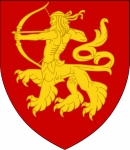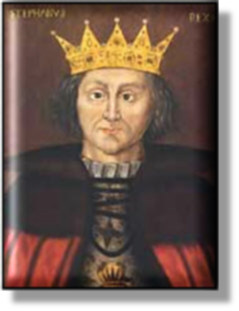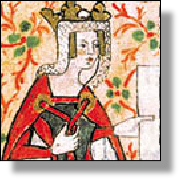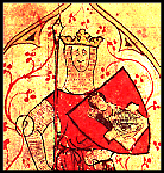


|
1135 |
The French sculptor Gislebertus completes his work at the cathedral of Saint-
|
|
1138 |
Civil War breaks out. Matilda, supported by her half-
A Scottish army under David I invades England on behalf of Matilda, but is defeated by forces loyal to Stephen at the Battle of the Standard.
|
|
1139
1141 |
Afonso Henriques, Count of Portugal, claims the title of King of Portugal and declares the country independent of Spain. In 1147 he captures Santarém and Lisbon from the Moors.
Matilda's forces defeat Stephen's army at the Battle of Lincoln. Stephen is captured but her attempt to be crowned in London fails and her supporters suffer defeat at the Battle of Winchester.
The Italian religious reformer Arnold of Brescia is condemned as a heretic at the Council of Sens for demanding an end to the wealth and temporal power of the papacy.
|
|
1143 |
A vast collection of texts on all aspects of church discipline is completed by the Italian monk Gratian. This work, called the Decretum Gratiani, earned him the title Father of Canon Law.
|
|
1147 |
The Almoravid empire collapses following the capture of their capital Marrakesh by the Almohads. Some years later the Almohads become the new rulers of Muslim Spain.
|
|
1148 |
The Italian theologian Peter Lombard begins writing his Books of Sentences, a work which was to have considerable influence upon Roman Catholic doctrine.
|
|
1150 |
|
|
1151 |
The Toltec Empire of Central America comes to an end after their sacred city, Tula, is destroyed by the Chichimec, several tribes of nomadic warriors invading from the north.
|
|
1154 |
The Arab traveller and geographer Al-
The death of Stephen brings his troubled reign to an end. By prior agreement, Matilda's son, Henry, succeeds to the throne as Henry II, King of England and Normandy. |







 xxxxx
xxxxx xxxxx
xxxxx The Welsh chronicler
The Welsh chronicler  The
The  The great temple of
The great temple of